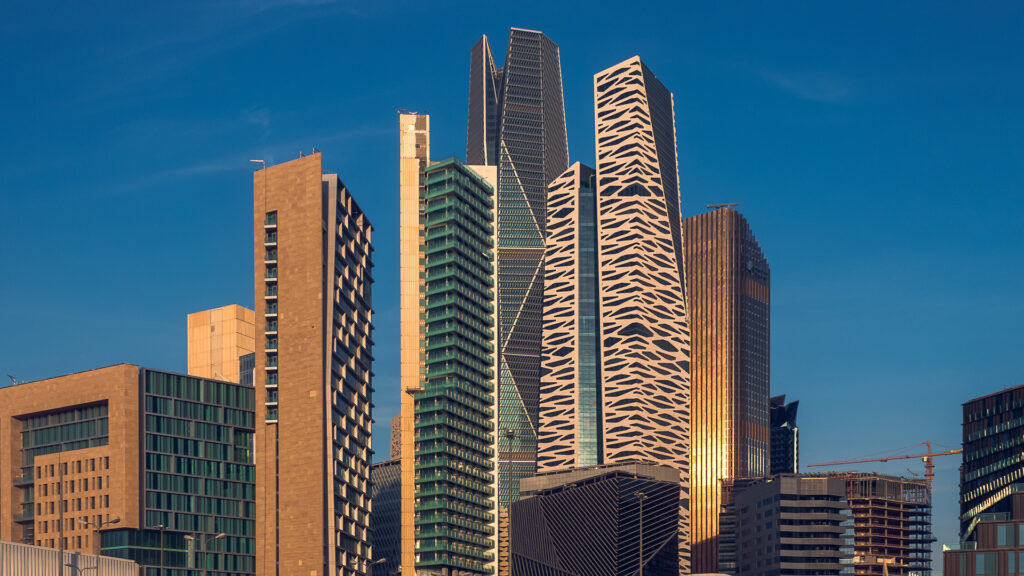
Myanmar – open for business
The recent elections in Myanmar appear to have provided a watershed in the country’s challenging political landscape. The last 12 months have seen its government embark on a wide-ranging programme of economic and political reforms, prompting the first visit by a US Secretary of State in more than 50 years.
Has resource rich Myanmar come in from the cold?
Has the time come for Myanmar to open its doors to new foreign investment? Will foreign investors now set their sights on the considerable resource opportunities on offer in this new political environment?
The following briefing discusses the opportunities, as well as the potential risks and pitfalls, facing foreign investors.
Are the doors now open?
For over five decades, Myanmar suffered from the effects of international isolation and economic stagnation. Having been one of Asia’s wealthiest nations at the time of its independence in 1948, by 2011 Myanmar had slumped to one of Asia’s poorest.
Following the recent general election (the first in 20 years), the country appears to have signalled a change in attitude. In spite of allegations of electoral fraud and a boycott by Aung San Suu Kyi’s National League for Democracy, the result was hailed by the government as a significant step in the transition to civilian democracy.
The government’s promise of economic and political reforms appears to be holding true. 2011 has witnessed significant political and economic developments: the release of political prisoners; the announcement by Aung San Suu Kyi that she will stand for election to parliament; new laws allowing peaceful protests and the formation of unions; anti-corruption initiatives; policies aimed at lifting restrictions on the flow of foreign investment; and exchange rate reforms.
In addition, the Association of South East Asian Nation’s (ASEAN) decision in November 2011 to allow Myanmar to take on the leadership of the 10 member bloc in 2014, was widely seen as an endorsement of the country’s progress, a move that was followed in December 2011 by a visit by Hillary Clinton. Among the encouraging messages of support was the pledge that the US was “prepared to walk the path of reform [with Myanmar]” and would be “prepared to go further if reforms maintain their momentum”. Such diplomatic language has led to speculation by commentators of a relaxation of the sanctions currently in place, in turn ending decades of western isolation.
First mover advantage?
Myanmar’s resource reserves provide the country with significant economic potential. For those companies willing to take the risk, the potential rewards may be substantial.
Myanmar possesses an abundant supply of natural resources (see below). According to Myanmar government officials, the country has the world’s 10th largest natural gas reserves, estimated at over 90 trillion cubic feet, and whilst many commentators dispute the accuracy of these figures, the presence of French and US energy companies, despite the continuing sanctions in place, clearly indicates the seriousness with which Myanmar’s oil and gas reserves are being taken. Myanmar is also endowed with other significant resources, including timber, minerals, precious stones, fisheries and agricultural products.
Additionally, Myanmar finds itself well placed geographically, which should allow it to take economic advantage due to its proximity to strong Asian economies. Lodged between South East Asia, India and China, the country is situated at the heart of the world’s key growth economies. With the targeted investment in infrastructure, specifically in areas such as rail, road and pipelines, together with its deep sea ports, situated as they are on the Indian Ocean, Myanmar has the potential to emerge as a vital link in the region’s economic activity. Furthermore, with a population of 53 million people, Myanmar has a large workforce with strong prospects for domestic growth.
However, years of western isolation means that Myanmar lags far behind its neighbours in many core economic sectors, such as construction and telecommunications. This lack of development, together with the absence of any significant local competitors, presents foreign companies with an opportunity to fill the void.
Can risk be rewarded?
Despite the strides which have been taken and the Government’s apparent eagerness to continue with the pace of change, investors still have a number of reasons to be cautious, especially in the short term:
- Regulatory uncertainty: among the biggest concerns for any foreign company looking to invest in a developing economy is its regulatory framework. Myanmar lacks a responsive, transparent and accountable regulatory framework and this creates a challenging environment for setting up businesses. Moreover, predicting the ultimate shape regulation will take following the transformation from a command economy is extremely difficult. Specifically, in relation to foreign investors, it remains unclear what rights, protections and tax incentives will be offered – however, similar concerns have been raised in other newly emerging economies.
- Government inefficiency and corruption: Myanmar was recently ranked as the world’s 2nd most corrupt country behind Somalia. Not only does this make the practicalities of doing business extremely difficult, but also potentially illegal for companies covered by anti-bribery legislation with extra-territorial reach (see, UK Bribery Act 2010).
- Infrastructure: Myanmar’s infrastructure has suffered from years of neglect, an example of which is the rail network, which remains relatively untouched since independence in 1948. To lay the foundations of growth, significant investment will have to be made in areas such as transport, energy and telecommunications.
- Workforce: despite possessing a relatively large and cost competitive workforce, a significant proportion of it possess little to no experience of modern technology and business practices.
- Exchange rate: Myanmar has an official exchange rate and an unofficial black market, exchange rate. Recently, at the request of its central bank, the International Monetary Fund sent a team to Myanmar to advise on unifying the exchange rates, as well as lifting restrictions on international payments and transfers.
- Sanctions: sanctions by western nations remain in force. Whilst many commentators speculate that these will soon be removed, this will ultimately depend on the pace of change that the country is able to achieve.
- Risk of rollback: although the signals from the new Government support the view that it is committed to political and economic reform, the path to a full democracy and a thriving market economy is one with no guarantee as to the end result, and it remains to be seen how far the present Government intends to go with its reforms. For example, in 2008 a new constitution was introduced, effectively entrenching the primacy of the military. Accordingly, a quarter of seats in both parliamentary chambers are now reserved for the military and three key ministerial posts for serving generals (interior, defence and board affairs).
The potential opportunities and rewards for foreign companies willing to invest in Myanmar are considerable. Already, the effects of political and economic reforms are being felt, as investors seek a foothold in the country: foreign investment jumped from $300 million in 2009-10, to $20 billion in 2010-11. However, whilst the outlook is positive and exciting, given the new ground that is being trodden, investors would be wise to take a cautious approach before diving in.
1. Myanmar sanctions – the current regime
Since the early 1990’s, Myanmar has been the target of sanctions by the United States, the EU and Canada.
United States
The US first imposed an arms embargo on Myanmar in 1993, widening it four years later to include all new investment. In 2003, the Myanmar Freedom and Democracy Act was passed, banning all imports, with the exception of teak and gems that had been processed in a third country. The Act also restricted the export of financial services, froze the assets of some financial institutions and extended visa restrictions on officials.
The Tom Lantos Block Act of 2008 imposed a specific ban on jadeite and rubies.
EU
In 1996, the EU imposed sanctions that included a ban on the sale or transfer of weapons, visa restrictions on officials and a freeze on officials’ overseas assets. It also suspended all bilateral aid, other than humanitarian assistance.
Further sanctions were imposed in 2007, following the violent suppression of anti-government protests, including a ban on imports of gems, timbers and metals. These were again tightened in 2009, following the extension of Aung San Suu Kyi’s house arrest.
Canada
Canada imposed sanctions on Myanmar in 2007, which banned imports and exports, apart from humanitarian goods. The assets of Myanmarese citizens connected to the government were frozen. Canada also outlawed the provision of financial services and technical data to Myanmar.
Asia
Asian countries have been against imposing sanctions on Myanmar. However, of the major economies only China, India and South Korea have actively invested in the country.
2. GDP
- Expected to rise by 5.5% in 2011.
- $82.72 billion (PPP) (2011).
Exports: $9.5 billion (2011)
- Commodities: natural gas, wood products, pulses, beans, fish, rice, clothing, jade and gems. Partners: Thailand 38.3%, India 20.8%, China 12.9%.
Imports: $5.4 billion (2011)
- Commodities: fabric, petroleum products, fertilizer, plastics, machinery, transport equipment, cement, construction materials, crude oil, food products, edible oil.
- Partners: China 38.9%, Thailand 23.2%, Singapore 12.9%.
Source: CIA, The World Factbook.
3. How can new participants considering Myanmar protect themselves?
Ensure a thorough due diligence process is undertaken.
- Consider a local partner with a strong JV Agreement – particularly when dealing with pre-emption rights and political risk.
- Contemplate political risk insurance or other mitigating strategies.
- Regardless of the jurisdiction, adopt western governance positions.
- Seek legal/accountancy advice early on.
- When investigating resource assets, look to independent and widely recognised experts to substantiate them accurately.
- Always consider the least attractive outcome from the outset and plan appropriately.











